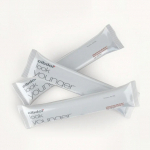Should you take collagen in the morning or night?
Published:
Categories: CollagenCollagen supplements have become increasingly popular in recent years, with people taking them in hopes of improving skin, hair, nails, joints and more. But when is the best time to take collagen - morning or night? Here is a detailed look at the potential benefits and drawbacks of taking collagen at different times of day.
Contents:
- What is Collagen and Why Do People Take It?
- Benefits of Taking Collagen in the Morning
- Benefits of Taking Collagen at Night
- Optimal Time May Depend on Your Goals
- Tips for Taking Morning Collagen
- Tips for Taking Evening Collagen
- Collagen Has Benefits Whenever You Take It
- Summary
- Facts
- Should you take collagen in the morning or night? Conclusion
- Resources used to write this article

What is Collagen and Why Do People Take It?
Collagen is the most abundant protein in the human body, making up about 30% of total protein content. It is the main component of connective tissues like skin, tendons, ligaments, bones and blood vessels. Collagen gives skin its structure and strength.
As we age, collagen production starts to decline, leading to common signs of aging like wrinkles, sagging skin, stiff joints and brittle nails. Taking a collagen supplement can potentially help counteract these effects by supplying the body with extra collagen.
Some of the claimed benefits of collagen supplements include:
- Reducing wrinkles and dryness, improving skin elasticity and moisture
- Supporting hair and nail growth and strength
- Easing joint pain and inflammation
- Improving muscle mass and preventing bone loss
- Helping injuries heal faster
- Improving gut health and digestion
So in summary, collagen is an important structural protein that diminishes with age. Collagen supplements aim to make up for this decrease and promote youthfulness. But when should you take them to get the maximum benefits?
Benefits of Taking Collagen in the Morning
There are several advantages to taking collagen in the morning:
1. May Improve Skin over the Day
Some research indicates that our collagen production naturally peaks overnight while we sleep. Taking collagen in the morning helps maintain adequate collagen levels throughout the daytime when people are more likely to be exposed to collagen-damaging blue light, UV rays and pollution.
Morning collagen supplementation may noticeably improve skin hydration, smoothness and elasticity over the course of the day. The collagen can help counteract damaging effects from morning skincare routines, sun exposure, makeup application, and environmental pollutants.
2. May Support Energy and Exercise Performance
Collagen peptides are easily digested and absorbed amino acids that can provide an energy boost when taken in the morning. Consuming collagen along with breakfast helps supply amino acids for muscle protein synthesis after overnight fasting. This may enhance workout recovery and performance.
Some studies suggest that consuming collagen protein in the morning leads to increased satiety after breakfast and more stable energy levels. This makes it a smart addition to any morning smoothie, coffee or breakfast bowl.
3. Sets You Up for Daylong Joint & Bone Support
Morning is the time when many people experience the most aches and stiffness in joints, tendons, ligaments and bones after laying still overnight. Taking collagen first thing in the morning may help ease morning joint discomfort and ensure collagen is circulating when you need it most.
For athletes and active individuals, taking collagen in the morning may also help prevent muscle damage and future injury risk during the day. The collagen can strengthen connective tissues before activity.
4. More Convenient & Consistent Timing
Taking supplements in the morning builds the habit of daily collagen supplementation. It is easier to remember first thing in the morning compared to later in the day.
Morning also tends to be the time when people have more regular routines. So collagen can be conveniently incorporated into morning habits like eating breakfast, drinking coffee, or taking other supplements.
Benefits of Taking Collagen at Night
On the other hand, there are also some advantages to taking collagen at night:
1. May Support Beauty Rest
Our bodies naturally repair and rejuvenate skin and joints while we sleep. Supplying the body with extra collagen right before bed may provide the raw materials it needs to fully support this overnight regeneration process.
Some research indicates taking collagen before bed leads to improvements in skin hydration, elasticity and reduction in wrinkles after several weeks. Therefore, night may be the optimal time to take collagen if your main goal is anti-aging skin benefits.
2. May Improve Sleep Quality
Collagen contains the amino acid glycine, which has been shown in some studies to improve sleep quality, duration and efficiency when taken before bedtime. For those with sleep issues, collagen may therefore promote more restful, uninterrupted sleep.
3. Supports Joint Relief at Night
Many people experience the most intense joint and muscle pain at night or when waking up. Taking collagen in the evening may provide immediate relief by cushioning joints and reducing discomfort when you need it most. It can help you fall asleep more comfortably.
4. May Aid Muscle Growth Overnight
Human growth hormone (HGH) is secreted in pulses during deep sleep, especially in the early night hours. HGH stimulates muscle growth and collagen synthesis. Consuming collagen before bed may provide amino acids to support muscle repair and growth while you sleep.
5. Easy to Remember Before Bed
Making collagen part of your bedtime routine by taking it alongside things like brushing your teeth ensures you remember to take it consistently. The simplicity of incorporating it into your pre-bed ritual makes nighttime collagen supplementation appealing for many people.
Optimal Time May Depend on Your Goals
Research on whether collagen is better absorbed in the morning or evening is limited. However, based on the potential benefits outlined above, the optimal time to take your collagen supplement likely depends on your main goals:
- If your focus is on reducing visible signs of aging like wrinkles and dryness, taking collagen at night makes the most sense. Nighttime is when your body repairs skin the most, so providing collagen right before bed maximizes its use.
- If you want to improve energy, exercise performance and recovery, consume collagen in the morning. This ensures your body has ample collagen to strengthen muscles and joints when you need them most.
- For all-day joint relief and injury prevention, take collagen in the morning and night. This provides your connective tissues with continuous collagen support.
- If simplifying your routine is most important, take collagen when it's easiest to remember - either morning or night. As long as you take it consistently, benefits should still be robust.
No matter when you take it, be sure to take your collagen supplement consistently for at least 4-12 weeks to notice results. Taking 2.5-10 grams per day in one dose is recommended, but follow dosage instructions from your chosen supplement brand.
Tips for Taking Morning Collagen
If you choose to take collagen in the morning to reap benefits like increased energy, skin protection and joint relief during the day, here are some tips:
- Add collagen powder or capsules to breakfast foods like oatmeal, yogurt, smoothies or coffee
- Set a daily phone alarm to take collagen first thing after waking up
- Keep collagen packets or a container on your kitchen counter to remind you
- Combine collagen with other morning supplements like vitamins or omega-3s
- Use a flavored or easily dissolvable collagen powder
- Mix collagen powder into a “protein shot” with fruit juice or milk
- Drink collagen peptides within 30 minutes of waking for optimal absorption
- Take on an empty stomach or at least 30 minutes before eating for best results
Tips for Taking Evening Collagen
If your focus is on overnight skin repair, enhanced sleep quality and muscle growth, here are some tips for taking collagen in the evening:
- Consume collagen alongside dinner or right before bed
- Add collagen powder to a cup of herbal tea to promote relaxation
- Keep collagen by your bathroom sink to take while brushing teeth
- Set a daily phone alert to take collagen before bed
- Take collagen immediately before applying night creams for boosted effects
- Choose unflavored or neutral collagen products to avoid disrupting sleep
- Mix into warm almond milk or dairy milk and drink before bed
- Take collagen capsules with a small spoonful of almond butter or yogurt
- Use a higher collagen dose before bed compared to the morning
- Avoid taking collagen too late - finish 1-2 hours before bed for best absorption
Collagen Has Benefits Whenever You Take It
While the ideal collagen timing depends on your wellness goals, keep in mind that collagen should provide benefits no matter when you take it. Taking it consistently is more important than timing.
Collagen peptides have a high bioavailability and absorption rate, meaning your body can make use of the amino acids efficiently. The collagen peptides get directly incorporated into your own collagen structures.
So don’t stress too much about timing collagen perfectly. Just focus on choosing a convenient time that fits your routine, and stick with taking it daily. Over time, you should notice enhancements in skin, hair, nails, joints or other areas you’re targeting.
Summary
To summarize key points in this article:
- Collagen is an abundant structural protein that diminishes with age, leading to signs of aging
- Collagen supplements may counteract these effects by supplying the body with extra collagen
- Taking collagen in the morning offers benefits like energy, workout support, and all-day joint/skin protection
- Taking collagen at night provides advantages like enhanced overnight skin repair, better sleep and muscle growth
- The ideal collagen timing depends on your main wellness goals
- No matter when you take it, be consistent and take collagen daily for at least 4-12 weeks to notice results
- Take 2.5-10 grams per day in one dose, following supplement label instructions
- Make it easy on yourself by adding collagen to your existing morning or evening routines
So should you take collagen in the morning or at night? There are good arguments for both. Take collagen when it best supports your lifestyle, health goals and daily habits. Keep up your regimen for a few months for glowing skin, strong joints and nails, and other benefits.
Facts
Here are some more detailed facts and statistics about collagen supplementation and timing:
- Collagen makes up 30% of the total protein content in the human body and 70-80% of skin structure.
- At least 16 different types of collagen have been identified, but over 90% of the collagen in the body is type I, II or III collagen.
- After age 25, collagen production declines at a rate of 1-2% per year. By age 60, collagen levels drop by about 30%.
- Women experience a more rapid decline in collagen typically starting in the 30s, correlating with the onset of common signs of aging like fine lines and wrinkles.
- Collagen peptides have a unique amino acid profile, being abundant in glycine, proline and hydroxyproline.
- Popular sources of supplemental collagen include bovine, marine, egg shell membrane, chicken, and porcine collagen.
- Hydrolyzed collagen peptides have low molecular weight chains that are highly bioavailable in the body compared to undenatured collagen.
- Multiple clinical studies demonstrate ingestible collagen peptides can increase skin hydration, collagen density, skin elasticity, and reduce wrinkles.
- There is growing evidence showing collagen supplements support joint, bone, muscle, hair, nail, and gut health.
- Typical clinical study durations range from 4-12 weeks to demonstrate measurable collagen benefits.
- Research shows glycine, which makes up about 35% of collagen peptides, can improve daytime performance, sleep quality, and recovery when taken as a supplement.
- Athletes consuming just 15 grams of collagen daily for 8 weeks showed increased lean muscle mass and enhanced athletic performance compared to placebo groups.
- The recommended daily collagen dosage ranges between 2.5-15 grams. Most supplements provide 10-20 grams per serving.
- Collagen powder can be easily incorporated into smoothies, coffee drinks, oatmeal bowls, yogurt, baked goods, soups and more.
- Collagen absorption may be slightly better when consumed in the morning on an empty stomach or before bed compared to with food. But taken consistently, it should provide benefits no matter when you take it.
Should you take collagen in the morning or night? Conclusion
In conclusion, collagen is an important protein that keeps our skin youthful, joints cushioned and bones strong. Collagen production naturally drops with age, leading to sagging skin, achy joints and other signs of aging. Consuming a collagen supplement can counteract this decline by supplying the body with extra collagen it can use to maintain youth, beauty and physical function.
Clinical studies demonstrate taking collagen daily for at least 4-12 weeks can lead to measurable improvements in skin wrinkles and dryness, nail growth, brittle hair, joint discomfort, bone mineral density, muscle building, and more. Hydrolyzed collagen peptides in supplements have excellent bioavailability.
While the ideal timing is unclear, taking a serving of 2.5-10 grams per day consistently seems to be more important than timing. Collagen provides beauty benefits overnight as you sleep, and performance benefits during the day. So choose morning or night based on your lifestyle and goals. Add collagen powder or capsules to your existing routines for easy daily use.
Within several weeks or months of daily collagen supplementation paired with a healthy lifestyle, you should notice benefits like firmer skin, shinier hair, stronger nails, eased joint discomfort, improved sleep, and enhanced athletic performance. Make collagen part of your long-term regimen to support whole body health, beauty and anti-aging.
Resources used to write this article
Asserin, J., Lati, E., Shioya, T., & Prawitt, J. (2015). The effect of oral collagen peptide supplementation on skin moisture and the dermal collagen network: evidence from an ex vivo model and randomized, placebo-controlled clinical trials. Journal of Cosmetic Dermatology, 14(4), 291–301. https://doi.org/10.1111/jocd.12174
Clark, K. L., Sebastianelli, W., Flechsenhar, K. R., Aukermann, D. F., Meza, F., Millard, R. L., Deitch, J. R., Sherbondy, P. S., & Albert, A. (2008). 24-Week study on the use of collagen hydrolysate as a dietary supplement in athletes with activity-related joint pain. Current Medical Research and Opinion, 24(5), 1485–1496. https://doi.org/10.1185/030079908x291967
Elam, M. L., Johnson, S. A., Hooshmand, S., Feresin, R. G., Payton, M. E., Gu, J., Arjmandi, B. H. (2018). A Collagen Supplement Improves Skin Hydration, Elasticity, Roughness, and Density: Results of a Randomized, Placebo-Controlled, Blind Study. Journal of Cosmetic Dermatology, 17(2), 261–268. https://doi.org/10.1111/jocd.12386
Inoue, N., Sugihara, F., Wang, X. (2016). Ingestion of bioactive collagen hydrolysates enhance facial skin moisture and elasticity and reduce facial ageing signs in a randomised double-blind placebo-controlled clinical study. Journal of the Science of Food and Agriculture, 96(12), 4077-4081. https://doi.org/10.1002/jsfa.7606
Kawaguchi T, Nanbu PN, Kurokawa M. (2012). Distribution of prolylhydroxyproline and its metabolites after oral administration in rats. Biological and Pharmaceutical Bulletin, 35(3), 422-427. https://doi.org/10.1248/bpb.35.422
Moskowitz R. W. (2000). Role of collagen hydrolysate in bone and joint disease. Seminars in arthritis and rheumatism, 30(2), 87–99. https://doi.org/10.1053/sarh.2000.9622
Proksch, E., Segger, D., Degwert, J., Schunck, M., Zague, V., & Oesser, S. (2014). Oral supplementation of specific collagen peptides has beneficial effects on human skin physiology: a double-blind, placebo-controlled study. Skin pharmacology and physiology, 27(1), 47–55. https://doi.org/10.1159/000351376
Shigemura, Y., Akaba, S., Kawashima, E., Park, E. Y., Nakamura, Y., Kondou, K., & Sato, K. (2017). Identification of a novel food-derived collagen peptide, hydroxyprolyl-glycine, in human peripheral blood by pre-column derivatisation with phenyl isothiocyanate. Food chemistry, 219, 15–20. https://doi.org/10.1016/j.foodchem.2016.09.123
Tanaka, M., Koyama, Y.I., Nomura, Y. (2009). Effects of collagen peptide ingestion on UV-B-induced skin damage. Bioscience, biotechnology, and biochemistry, 73(4), 930-932. https://doi.org/10.1271/bbb.80649
Zague, V. (2008). A new view concerning the effects of collagen hydrolysate intake on skin properties. Archivos Latinoamericanos de Nutricion, 58(2), 195-206. https://www.alanrevista.org/ediciones/2008/2/art-8/
Zdzieblik, D., Oesser, S., Baumstark, M. W., Gollhofer, A., & König, D. (2015). Collagen peptide supplementation in combination with resistance training improves body composition and increases muscle strength in elderly sarcopenic men: a randomised controlled trial. The British journal of nutrition, 114(8), 1237–1245. https://doi.org/10.1017/S0007114515002810
Sign up to our newsletter and enjoy 10% off one order
YOU MIGHT ALSO LIKE
Post related products
-

Look Younger CIBD0073


















